第43章 Inferno: Canto XXXIII(2)
When he had said this, with his eyes distorted, The wretched skull resumed he with his teeth, Which, as a dog's, upon the bone were strong.
Ah! Pisa, thou opprobrium of the people Of the fair land there where the 'Si' doth sound, Since slow to punish thee thy neighbours are, Let the Capraia and Gorgona move, And make a hedge across the mouth of Arno That every person in thee it may drown!
For if Count Ugolino had the fame Of having in thy castles thee betrayed, Thou shouldst not on such cross have put his sons.
Guiltless of any crime, thou modern Thebes!
Their youth made Uguccione and Brigata, And the other two my song doth name above!
We passed still farther onward, where the ice Another people ruggedly enswathes, Not downward turned, but all of them reversed.
Weeping itself there does not let them weep, And grief that finds a barrier in the eyes Turns itself inward to increase the anguish;
Because the earliest tears a cluster form, And, in the manner of a crystal visor, Fill all the cup beneath the eyebrow full.
And notwithstanding that, as in a callus, Because of cold all sensibility Its station had abandoned in my face, Still it appeared to me I felt some wind;
Whence I: "My Master, who sets this in motion?
Is not below here every vapour quenched?"
Whence he to me: "Full soon shalt thou be where Thine eye shall answer make to thee of this, Seeing the cause which raineth down the blast."
And one of the wretches of the frozen crust Cried out to us: "O souls so merciless That the last post is given unto you, Lift from mine eyes the rigid veils, that I May vent the sorrow which impregns my heart A little, e'er the weeping recongeal."
Whence I to him: "If thou wouldst have me help thee Say who thou wast; and if I free thee not, May I go to the bottom of the ice."
Then he replied: "I am Friar Alberigo;
He am I of the fruit of the bad garden, Who here a date am getting for my fig."
"O," said I to him, "now art thou, too, dead?"
And he to me: "How may my body fare Up in the world, no knowledge I possess.
Such an advantage has this Ptolomaea, That oftentimes the soul descendeth here Sooner than Atropos in motion sets it.
And, that thou mayest more willingly remove From off my countenance these glassy tears, Know that as soon as any soul betrays As I have done, his body by a demon Is taken from him, who thereafter rules it, Until his time has wholly been revolved.
Itself down rushes into such a cistern;
And still perchance above appears the body Of yonder shade, that winters here behind me.
This thou shouldst know, if thou hast just come down;
It is Ser Branca d' Oria, and many years Have passed away since he was thus locked up."
"I think," said I to him, "thou dost deceive me;
For Branca d' Oria is not dead as yet, And eats, and drinks, and sleeps, and puts on clothes."
"In moat above," said he, "of Malebranche, There where is boiling the tenacious pitch, As yet had Michel Zanche not arrived, When this one left a devil in his stead In his own body and one near of kin, Who made together with him the betrayal.
But hitherward stretch out thy hand forthwith, Open mine eyes;"--and open them I did not, And to be rude to him was courtesy.
Ah, Genoese! ye men at variance With every virtue, full of every vice Wherefore are ye not scattered from the world?
For with the vilest spirit of Romagna I found of you one such, who for his deeds In soul already in Cocytus bathes, And still above in body seems alive!